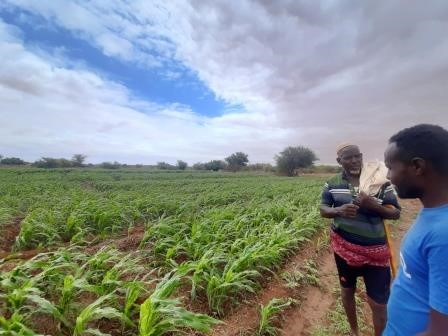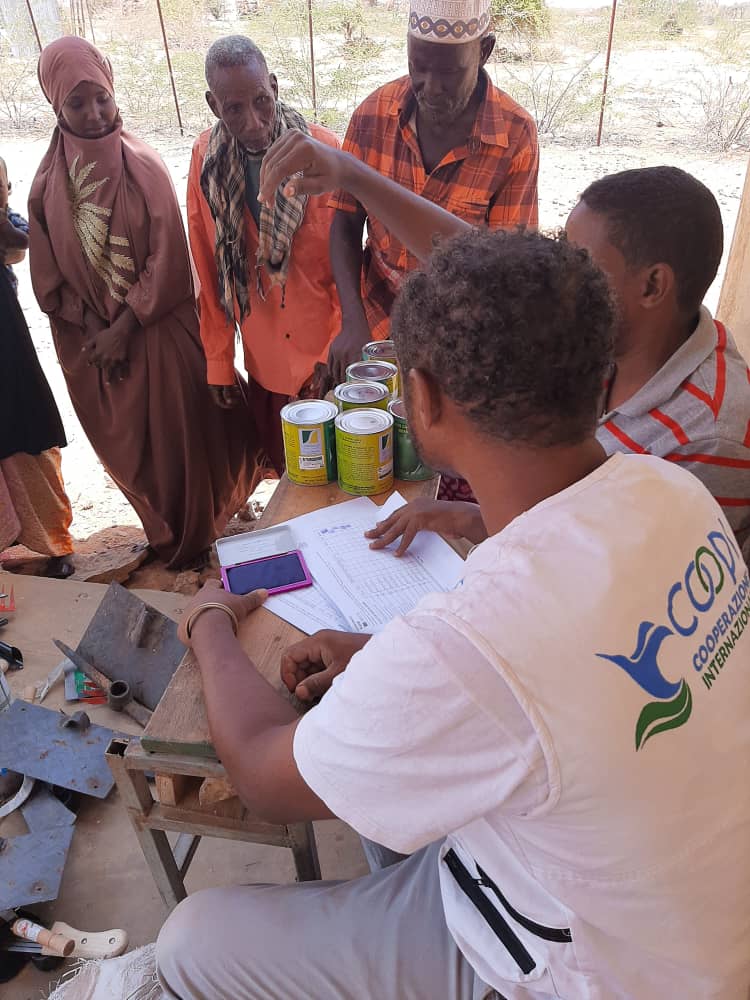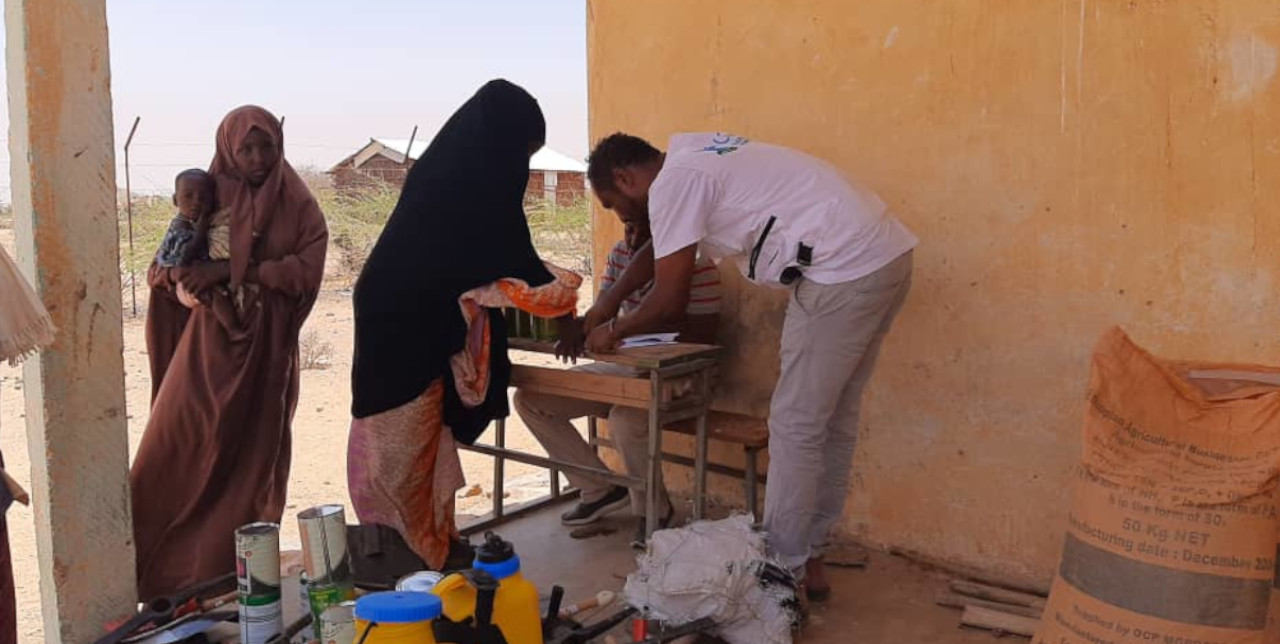27-10-2022 | di COOPI
Ethiopia. Mohamed's solar-powered irrigation system
Mohamed Bullow Aliyo a 65-year-old farmer from the small village of Boryale in Ethiopia. His harvests have always been bountiful, enough to both feed his family and sell some of his goods. He used a disel pump to irrigate his land, but due to the exponential increase in the cost of fuel, Mohamed has had to irrigate less and less land, thus halving his production.
I have always carried out work by using local and traditional techniques, with the key help of a diesel pump, which allowed me to irrigate the ground quickly. I was able to produce different crops, vegetables and fruit for family consumption and also for sale. I have more than 2 hectares of land that can be irrigated, but due to the rising price of fuel I had to cultivate no more than 1 hectare, in most cases even less. The price of fuel for the pump generator has increased more and more, driving up production costs, and the frequent mechanical problems have been a burden for me and other farmers in the region.

As of November 2020, COOPI - Cooperazione Internazionale is active in Ethiopia with the project "Improving farmers' livelihoods through testing a model integrating technology transfer, climate-enhanced agriculture and social transformation", funded by the European Union. The overall objective of the project is to strengthen the resilience of Ethiopian farmers by supporting the transition from subsistence to modern and efficient agriculture through various innovations, including for example the solar-powered irrigation system. In this way, the productivity of irrigated land is increased through the application of sustainable agricultural practices and farmers are involved in a business model that connects them to markets for quality inputs and outputs.

The solar-powered irrigation system is new to our area and has solved our major problem: fuel. Detaching from it has been a dream, now I don't have to worry about it. Thanks to this system, my life will change significantly.
With the installation of these new sustainable techniques, Mohamed receives enough water, has increased the size of his farm and managed to save a lot. In addition, Mohamed intends to gradually increase the number of his cattle using his savings and in the near future plans to open a shop for his wife in the village.




 Ethiopia
Ethiopia